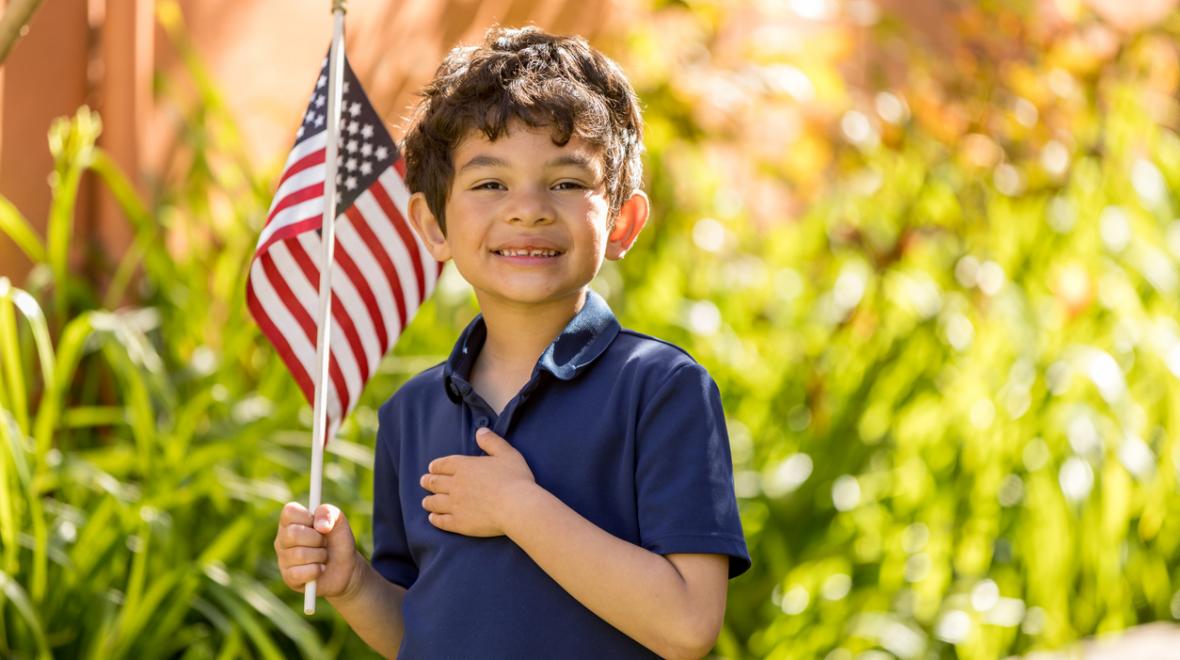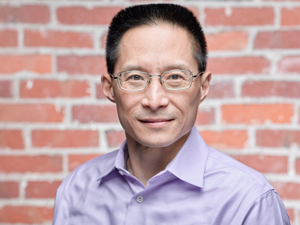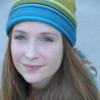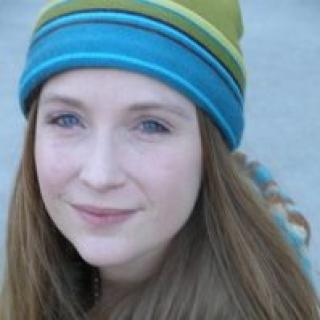
Editor's note, Nov. 7, 2020: In an election in which a record number of Americans voted, despite unprecedented challenges to their ability to do so, Democrat Joe Biden has been chosen as the 46th president of the United States. During a time of intense national crisis and unrest, Biden and running mate Sen. Kamala Harris, who makes history as the first woman, the first Black person and the first person of Southeast Asian descent to become vice president, made the election about decency, the character of the nation and the unshakable power of democracy. As we turn our collective attention to the work and healing that lie ahead for our nation under new leadership, we share with you an inspiring conversation with Citizen University CEO and cofounder Eric Liu about the opportunity — always available to us — to recommit to the principles of democratic citizenship that make our country so great.
To say that Eric Liu has an impressive curriculum vitae is an understatement. From his service as a White House speechwriter for President Bill Clinton (and later as Clinton’s deputy domestic policy adviser) to cofounding the Alliance for Gun Responsibility, to cofounding Citizen University, you could almost say that Liu wrote the book on citizenship. Oh, wait, he’s written several, actually.
In this time of the COVID-19 pandemic, Liu has a message for every American: Such extraordinary circumstances afford us the opportunity and obligation to recommit to our principles of democratic citizenship; to pledge to be a “Sworn-Again American.”

The mission of Citizen University, which convenes leaders to teach effective citizenship through gatherings, workshops and other collaboratives, is to catalyze a culture in which Americans are steeped in a sense of civic character, responsibly wielding the tools of civic power and contributing actively to solve problems in their communities.
If this civic revival sounds like a tall order, take heart. Liu will tell you that being a citizen is a culmination of little acts and choices. “It’s mindfulness of the way you are being a parent, being a volunteer at school, being a neighbor, or being a contributor to your faith or other community organizations,” he says. Those intentional, individual little acts and choices we make every day are more powerful than we might think.
We caught up with Liu to learn more about the work of Citizen University and his vision for how to live like a citizen in this testing time in our history.
How would you describe Citizen University to someone who may not have heard of it?
Citizen University is based in Seattle, doing work around the country to try to build a culture of powerful, responsible citizenship. We are trying to spread the belief that a strong democracy requires strong citizens, and that we all have the power to make change happen. We all have the responsibility to try. We have programs like Civic Saturdays, which are these gatherings that we help organize around the country that are focused on our civic ideals and creed about what it means to show up for each other in our community.
What’s the CU definition of citizenship?
In the first place, when we say citizenship in our work, we mean the broader ethical idea of being a contributor to community and a member of the body. At Citizen University, when we talk about citizenship, we often use this equation: power plus character equals citizenship. And when you unpack that for somebody, whether they are a child or an adult, we mean it very simply: That to really be a citizen in this broader sense means, number one, that you have to understand power. You have to understand how to get things done in a community, how to move people and ideas, organize action and raise money, and create agendas for the thing that you’d like to see happen. That’s the power side of the equation.
But while that’s important, it’s not sufficient, because you have to couple that literacy and power with a grounding and character — with a moral sense. And when we talk about character, we’re not talking about individual or personal virtue; we’re not talking about grit or perseverance or diligence, though those things are important. What we are meaning is more character in the collective.
How do you live in community? How do you behave in public? How do you hold a community together by your choices? And we’re talking more here about values such as shared sacrifice and service before self, and mutual aid and reciprocity. And just being a contributor.
Some of those words sound fancy, but when you boil it down, it means: Do you understand how to get things done in a community? And is the way that you’re going to get things done going to be about more than just you, for the greater good?
Do you think any differently about these everyday principles of citizenship in light of the threat and disruption of the pandemic?
The pandemic, I think, highlights some core beliefs that we have had in our work. In the first place, we always say, “Society becomes how you behave.” When you choose to be compassionate or not compassionate, when you choose to be civil or not civil, courteous or not courteous, that’s not just your personal choice: You are setting off a contagion of behavior. And that’s true under all circumstances in normal times, but in abnormal times, like now in this crisis, you really realize how fear is contagious. Anxiety is contagious. A sense of scarcity is contagious. And so, we have to remember, calm is also contagious. A sense that we’re going to take care of each other is contagious. A sense that fact and context and science matter, not just going off half-cocked and spreading rumor — that’s contagious.
Mental health is contagious, actually. Maintaining not just clarity and calm, but also an ability to care for yourself and recognize when you’ve got to take a breath and get perspective. In that way, too, you can set an example, no matter who you are, and society will become how you behave. So, that’s one principle.
A second principle we really highlight in all our work is “We’re all better off when we’re all better off.” In normal times, we make an argument about why it matters that we empower and invest in some of the most vulnerable members of our community, so that they can have a voice, so that they can have a say and so they can live to their fullest potential. But in the midst of a pandemic and a crisis, the other meaning of “We’re all better off when we’re all better off” is that there’s no way you can wall yourself off from the fate of people who are suffering. In the end, a community is only as healthy as its least healthy members.
The last principle that really is core to our work at Citizen University is “Don’t hoard power, circulate it.” I think hoarding is of course happening everywhere right now when you go to grocery stores and pharmacies. But it’s not just about the material things; it’s more, again, this creeping contagious anxiety where people feel like, “I can’t be generous to somebody right now, because I’ve got to look out for my own, and I’m not going to be the sucker who tries to help someone else out.” And when everybody does that, society falls apart.
We’ve got to circulate it. I don’t mean be a saint or an altruist. I mean, understand self-interest in an enlightened way, that when you do spend a little to keep a corner market open, when you do check in on your elderly isolated neighbor, you’re not being a sucker. You’re actually just making sure that the whole community is going to be able to sustain itself.
How do you encourage people during this pandemic to embrace and act on these principles, given the physical dislocation and realities imposed by mandatory social isolation?
Well, first of all, remember, social isolation is isolation of our bodies. I think the more our bodies have to be isolated from one another, the more we have to redouble our efforts to connect on the heart, mind, spirit and imagination level.
We can still practice mutual aid, no matter how much we have to shelter in place. We can do that by agreeing to help one another in our projects and endeavors. We can do that by checking in on our neighbors by telephone or by email, or videoconferencing. We can do that by giving money and time to causes that need to support those who are most vulnerable right now. And that’s not just people who are homeless or people who are in poor health, but it’s people whose livelihood is now completely threatened by this economic dislocation. So, there are a hundred ways we can be helping each other right now, even if we have to maintain 6 feet of distance.
What do you hope will be some positive outcomes of this daunting time?
I hope three things. I hope that we are able to flatten the curve and contain this pandemic, and reduce the suffering and the death that it is going to effect. That’s not just a medical hope. That’s not just a public health hope.
That hope is very connected to my second hope, which is that I hope that we can all muster together ways to remind each other how to live like a citizen right now.
To live like a citizen right now is to practice social distancing while also practicing social connectedness. It is to practice awareness of what’s going on in the world while balancing that with common perspective. It is to try to contain the fear that is spreading by dispensing regular doses of love. We have to live this way in every choice we make right now.
My third hope is that after this crisis passes, we retain some of the best lessons of how to live like a citizen, and that we don’t just revert to short-term thinking, selfishness, bad habits, and being isolated and cut off from one another. That we remember that there is a certain magic that happens in disasters and calamities, when people discover how interconnected we are with each other, and discover the beauty and the blessing and the power of fellow feeling. I hope that we will sustain that even after the worst of the emergency passes.
Any final words of advice for parents?
How we model everything right now, it’s not just for [our children], it will help us, too. There’s no better way to calm yourself than to have to actually calm someone else. And there’s no better way to be reminded of the importance of perspective, and respect, and trust, and mutuality than to try to teach and impart that to somebody else. And so for every parent out there right now, whether your kid is a toddler or, as in my case, a junior in college, this is a chance to help your children, yes, but also to remind ourselves of these deepest ways of living with full heart, like a true contributor in community.











